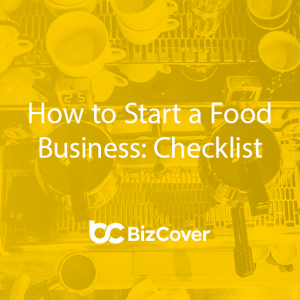If you’ve often thought about starting an online business, 2024 could be the year for you to take the plunge. Whether you’re attracted to the idea of a home-based online business or want to move your bricks and mortar business to a pure play online business model, there’s never been a better time to explore becoming part of the rapidly growing e-commerce market.
But how do you go about it? Read on for in-depth information on online business creation, and the essential steps you’ll need to take to start an online business and give yourself the best chance of success.
1. Start a business that fills a need
As with traditional businesses, one of your first priorities when starting your new online business is to fill a need that isn’t currently being met – or is being met, but albeit poorly.
Most entrepreneurs who are just starting out make the mistake of looking for a product first, and a market second. The reality is that identifying a market with unmet needs should be your first port of call. The trick is to find a group of people who are searching for a solution to a problem, but not finding the results they crave. The internet makes this kind of market research much easier than it once was.
2. Choose your business model
One of the most important decisions is choosing your business model. There are several business models for you to choose from for your new online business. Which business model will work best for you will be determined by how you think you should engage with and serve your customers. Here are four common business models for online businesses that you may consider for your online business:
- The subscription model: Customers sign up and make regular payments to access your product or service. Customers choose a subscription level depending on the number of features or level of support they wish to receive.
- Direct sale of single products: A model whereby a business sells products or services directly to the end consumer for a fixed price.
- The marketplace model: In the marketplace model the business owner operates a platform for party A and party B to buy and sell goods and services to one another.
- The software-as-a-service model: Services are delivered over the internet, rather than provided locally or on-site.
- All of these business models will work fine whether you start your online business from home or from a business premises.
3. Create a business plan
One of the most important things to know when starting an online business is that you need to have a crystal clear plan. Creating a business plan will help you to formalise your business idea, and as such should be one of your first steps. A good business plan will provide a template to guide you through the business creation process step by step, ensuring that you complete all the tasks you will need to set up your online business correctly.
Even if you don’t refer to your business plan often once you’re online business is up and running, undertaking a SWOT analysis and competitor analysis before you launch can help ensure that you clearly understand your market before you begin. If you’re seeking external funding for your online business, lenders will likely want to see a comprehensive business plan from you before they agree to approve your loan. Business.gov.au has a helpful guide for developing your business plan, including a free business plan template to download and use.
4. Define who your customers are
The next stage in this step by step starting an online business guide is researching your intended customers and developing a few buyer personas that capture the core target market for your product or service. Each buyer persona that you create should include their motivations, frustrations, and goals.
The market research you invest in or undertake yourself should provide answers to these key questions such as:
- what kind of products and services your online business will sell; and
- how you will brand your business.
For example, imagine that you want to help create better sales and invoicing software solutions for small business owners. You may consider:
- your customers’ goals and aspirations;
- the challenges your customers currently face; and
- the typical age of your customers.
5. Define who your competitors are
It goes without saying that it is also important that you conduct a competitor analysis when setting up your new online business. You may benefit from strategically considering:
- who else sells similar products or services (there are usually other businesses trying to solve the same problem you want to solve);
- what market segments you and your competitors target (for example, you could differentiate your business by focusing on providing a software service solution specifically to travel agencies); and
- what sets you apart from the competition (for example, your product might be the only one with functionality in several different languages).
6. Choose your business structure
Now you will need to decide on the structure of your business. Your structure will depend on the size of your business, the type of business it is, and how you plan to run it. All of these key details can have an impact on your set-up costs, the company tax you will be required to pay and your personal liability as the business owner. Common business structures in Australia for online businesses include.
- Sole trader:The most basic business structure, which is relatively simple to set up and operate. However, your personal assets can be at risk if things go wrong.
- Company:A company business structure is more complex than the sole trader structure and limits your liability because a company is a separate legal entity.
- Partnership:A partnership is a business structure comprised of two or more people who distribute income and losses between themselves.
- Trust:The Trust structure is both more complicated and expensive to set up, but it does provide the strongest asset protection.
The Australian Government’s Business Registration Service website offers plenty of handy tools to help aspiring online business owners to choose the business structure that best suits their needs. For more guidance on business structures you may engage a business adviser or a qualified accountant.
7. Register your business
Before you start trading, you’ll need to register your online business with the Federal Government. Registering your online business is a three-step process, as follows:
1. Register your business name
Unless you’re trading under your personal name, you’ll need to register a business name. When deciding on a business name, consider the following points:
- Is it memorable, short, and simple?
- Is it easy to pronounce and spell?
- Is it different from your competitors?
- Is it trademarked?
- Is the domain (website) name available?
The Australian Business Government website lets business owners check if their proposed business name is available and see if existing businesses are using a similar name and whether the domain is available. Once you’ve decided on your name, you can register it at the Australian Business Registration website.
2. Get an ABN (Australian Business Number)
An ABN is a unique 11-digit number that identifies your business to the government and the ATO. It’s free to register for an ABN. For more information and to apply, visit the Australian Business Register
3. Apply for relevant licences and permits
Depending on the type of online business you’re starting, you may need a licence and/or permit. The Australian Business Licence and Information Service is an handy resource for information relevant to your business type, industry, and specific location.
8. Design and build your website
As an online business, your website is your shopfront. It’s essential that it makes the right first impression and is easy for customers to use. Depending on your skill set, budget, and the amount of time you have, you might choose to outsource your website design and website copywriting.
There can be plenty of other steps you may need to take when going live with your new online business. The right approach for you will depend on your business size, type, and the industry or sector that you serve. It will also depend on whether you plan for your online business to be your sole source of employment or just an extra income stream.
Whatever position you are in, taking a planned approach to setting up your online business will give you the best chance of nailing a smooth, hassle-free launch and building a successful online business and brand into the future.
9. Establish a reputation as an expert
People use the internet to find information from credible sources – i.e. experts in their fields. You can provide that information to other websites (such as small business news websites) in the form of guest blog posts with backlinks to your own company website. In doing so, your online business will likely receive increased traffic and better search engine rankings. Just be sure to have your website address published with the piece to encourage readers to visit the website site for your online business.
To further elevate your reputation as an expert in your field you may send e-newsletters to your database featuring valuable content from your website.
You may further elevate your reputation as an expert by sharing your industry and business knowledge with others in industry forums and social networking sites where your target market is frequently found.
How BizCover helps online businesses reduce their risk
Are you planning to start an online business? Discover online business insurance options to compare competitive insurance quotes for your online business, get covered in only 10 minutes, and get back to building your business. If you prefer to pick up the phone, you can reach our friendly team on 1300 920 863.
This information is general only and does not take into account your objectives, financial situation or needs. It should not be relied upon as advice. As with any insurance, cover will be subject to the terms, conditions and exclusions contained in the policy wording.
© 2022 BizCover Pty Limited, all rights reserved. ABN 68 127 707 975; AFSL 501769ABN 68 127 707 975; AFSL 501769


